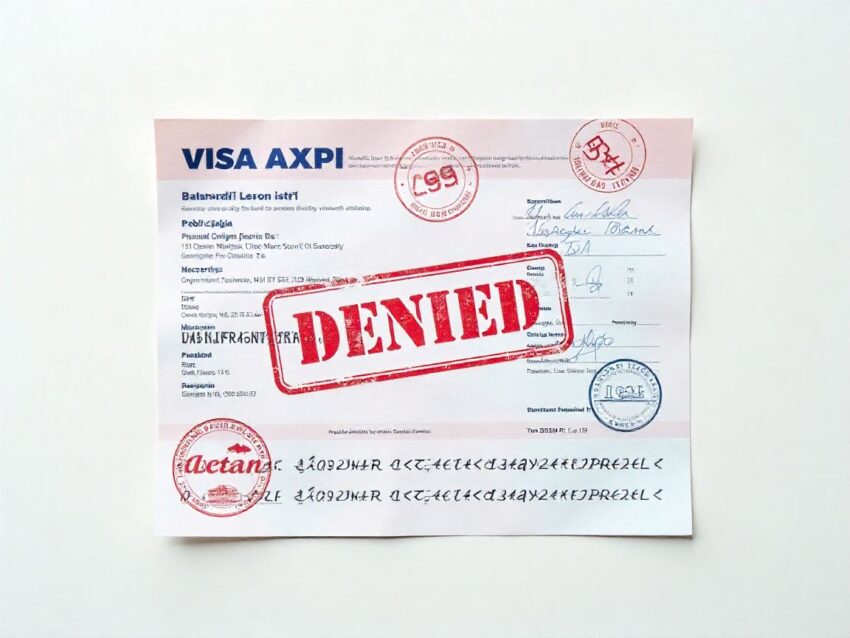Sunday, July 27, 2025

A talented group of teenage baseball players from Venezuela, the Cacique Mara team, has encountered a major setback in their bid to compete in the Senior League World Series in the United States. Their hopes were dashed when they were denied visas due to the stringent US travel restrictions. These restrictions, imposed by the U.S. government, have made it increasingly difficult for citizens from certain countries—including Venezuela—to travel for a variety of reasons, including sports events. The team’s situation underscores the impact of these visa policies on young athletes eager to showcase their skills internationally.
A Setback for Cacique Mara
Cacique Mara had been riding high after winning the Latin America Region Tournament in Mexico earlier this year. Their dominant performance in the tournament, where they won all five of their games, earned them a coveted spot in the Senior League World Series. This event, which gathers teams from around the world, would have been a fantastic opportunity for the Venezuelan team to compete against some of the best youth baseball squads globally.
However, despite their impressive record and the invitation to the prestigious tournament, the team’s excitement was short-lived. A week before the championship round, they learned that their visa applications had been rejected, leaving them unable to travel to the U.S. to participate in the event.
The Impact of US Travel Restrictions on International Athletes
The refusal to grant visas to the Cacique Mara team is part of a broader trend tied to US travel restrictions that have been in place for several years. These restrictions, aimed at enhancing national security, have had significant consequences, especially for individuals from countries like Venezuela, where political and economic instability has made travel challenging. Although some exceptions are made for high-profile athletes traveling for major events like the Olympics, Cacique Mara did not benefit from such leniency, leaving their dreams of competing in the U.S. shattered.
Venezuela, a country with a rich baseball history, has produced many Major League Baseball stars over the years. However, the ongoing political and economic turmoil—marked by hyperinflation, severe poverty, and violence—has made it increasingly difficult for Venezuelans to travel freely. The added complication of visa policies makes it even harder for athletes to secure the necessary permissions to compete internationally.
Emotional Toll on the Players and Their Supporters
The team’s president, Kendry Gutiérrez, expressed deep disappointment and frustration when the visas were denied. He noted that the players, who had worked for years to reach this point, were devastated by the decision. For them, the Senior League World Series was not just a competition—it was the culmination of years of hard work, training, and sacrifices. Gutiérrez emphasized that the team simply wanted the chance to play and represent their country on the world stage, a dream that was now impossible due to the US travel restrictions.
The decision to deny the Venezuelan visas comes as a painful reminder of the challenges that athletes from countries under restrictive immigration policies often face. The US travel restrictions have become a barrier not only for tourists but also for young athletes whose futures depend on the opportunities provided by international competitions.
Mexico’s Santa Maria de Aguayo Takes Their Place
As a result of the visa denial, a team from Mexico, Santa Maria de Aguayo, will take Cacique Mara’s place in the Senior League World Series. The team from Mexico had performed well in the regional tournament, winning three of their four games. While the Mexican team will now represent the region, the absence of Cacique Mara is deeply felt by many, especially as the Venezuelan players had been the clear favorites due to their superior performance in the tournament.
This situation raises important questions about the fairness of visa policies that restrict opportunities for talented individuals based on their nationality. Young athletes, like the members of Cacique Mara, work tirelessly to reach the highest levels of competition, only to face barriers that are beyond their control. The current US travel restrictions make it harder for these athletes to participate in events that could change the course of their careers.
The Wider Issue: Visa Policies and Their Implications
Cacique Mara’s experience is not an isolated case. The broader issue of restrictive visa policies continues to affect athletes from countries with unstable political situations, like Venezuela. The impact of these policies goes beyond just the immediate denial of visas—it also stifles the development of young athletes and limits their exposure to international opportunities. This is a recurring issue that affects not only Venezuelan teams but also those from other nations that face similar travel restrictions.
The current situation serves as a reminder of the complexity of balancing national security concerns with the need for global cooperation in sports and cultural exchanges. While the US travel restrictions are seen as a necessary security measure, the consequences for young athletes who are trying to make a name for themselves are often profound.
Conclusion: The Future of International Youth Sports
In conclusion, the denial of visas to the Cacique Mara Venezuelan baseball team highlights the broader issue of US travel restrictions and their impact on athletes from countries facing political and economic instability. While the team from Mexico will now have the opportunity to compete, the Venezuelan players remain unable to fulfill their dreams. The situation calls for a reevaluation of visa policies and their effects on the future of youth sports, as talented athletes deserve the chance to compete and showcase their abilities on the international stage, regardless of their nationality.







